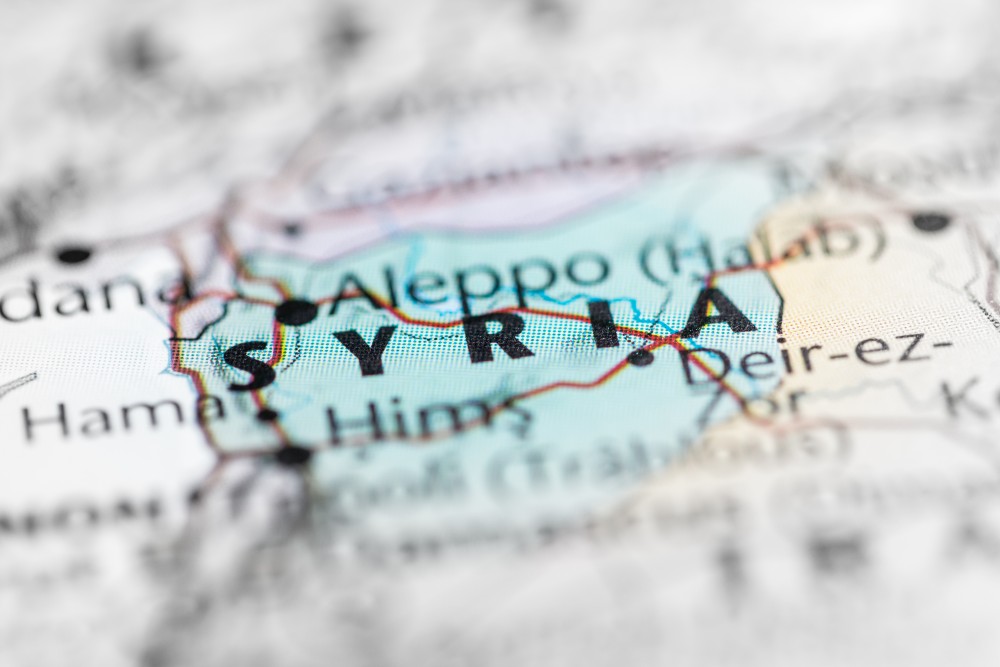
U.S. Rep. Adam Kinzinger (R-IL) introduced the bipartisan No Assistance for Assad Act, which would limit American assistance to Syrian areas that are controlled by its government or associated terrorist forces.
According to the 2016 Transparency International Corruption Index, Syria is among the most corrupt countries in the world, as described in the bill, H.R. 4681, which was introduced on Dec. 19.
And given this “rampant corruption,” bill sponsors don’t want funds from the United States that were earmarked to help finance Syria’s reconstruction as civilians return home to areas liberated from the Islamic State of Iraq and Syria (ISIS) being siphoned off to the regime of Syrian President Bashar al-Assad, according to the bill’s text.
“The genocide of the Syrian people by Bashar al-Assad and his Russian and Iranian backers may be the worst humanitarian crisis of our generation,” said Rep. Kinzinger, a member of the House Committee on Foreign Affairs.
“We cannot and must not allocate any resources to the brutal Assad regime in reconstructing what he has destroyed,” Kinzinger said.
Members of the House Foreign Affairs Committee joined Kinzinger in introducing the bill, including Chairman Ed Royce (R-CA), Ranking Member Eliot Engel (D-NY), and Rep. Brendan Boyle (D-PA).
The members said the bill aims to ensure the security of the Syrian people remains central to reconstruction and stabilization efforts in the country.
H.R. 4681 would place conditions on American assistance for early recovery, stabilization and reconstruction in Syrian territories controlled by the Assad regime. The conditions would include Syrian commitments to human rights; a political transition; and the safe, voluntary return of Syrian refugees and other internally displaced people. The limitations would not apply to projects administered by the local community or humanitarian assistance.
Additionally, H.R. 4681 would require the Syrian president to submit annual reports to Congress detailing any projects that utilized specific exceptions. The president also would have to develop a strategy to ensure besieged areas received humanitarian assistance.
“As co-chair of the Friends of a Free, Stable and Democratic Syria Caucus, our goal will continue to be in support of the people of Syria who simply seek to live free and in peace,” Kinzinger said this week.
Six years into the conflict in Syria, more than 11 million Syrians have been displaced from their homes and over 400,000 civilians have been killed, according to the text of H.R. 4681. The U.S. thus far has provided more than $7.4 billion to meet humanitarian needs of the Syrian people, becoming the world’s single-largest donor to the Syrian humanitarian response.
Rep. Royce thanked Kinzinger and Boyle for their leadership on what he called “common sense legislation” that ensures U.S. aid doesn’t strengthen the Assad regime, nor its Iranian-backed militias.
“For nearly seven years now, the Syrian people have been subject to widespread atrocities, including chemical attacks. This bill represents the latest in a series of measures Ranking Member Engel and I have worked to pass in the Foreign Affairs Committee to hold Assad and his enablers accountable,” Royce added.
“Until Assad respects the rights of his people, until they’re on the path toward a better future for themselves, and until there’s accountability for the regime’s war crimes, the United States shouldn’t spend a dime on reconstruction efforts in areas controlled by the regime,” said Rep. Engel.
“Buoyed by his patrons in Moscow and Tehran, the Butcher in Damascus broke Syria. Now he and his regime have to pay the price. We should not support any scenario that leaves him in power to continue his violence and oppression against the Syrian people,” Engel added.
H.R. 4681 has been referred to the House Foreign Affairs Committee and the House Financial Services Committee.



